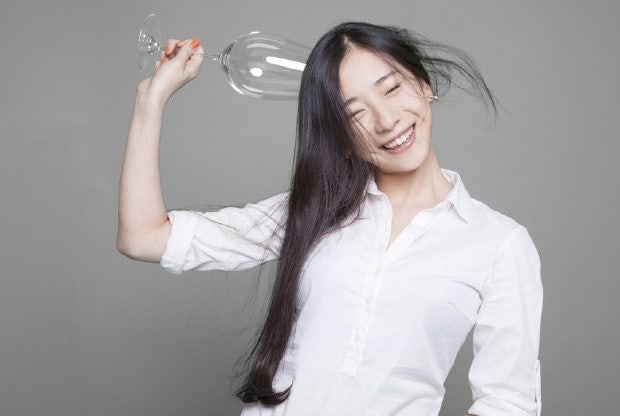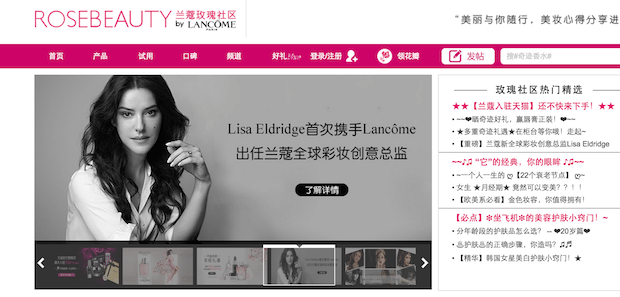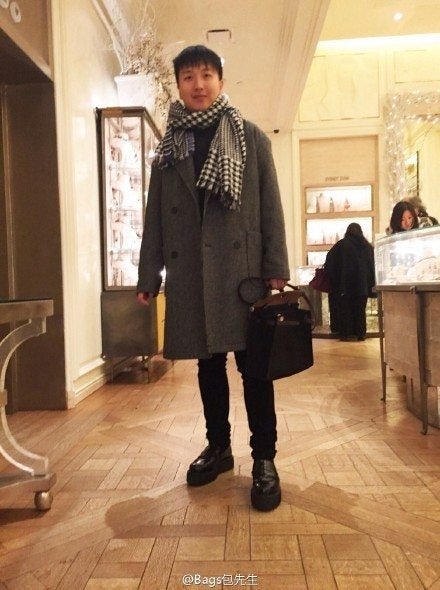
Chinese wine blogger "Drunk Mother Goose" holds big influence over her wine aficionado fans. (Drunk Mother Goose/Weibo)
For any luxury brand or retailer looking to make a mark in China, courting online influencers or key opinion leaders (KOLs) has long been an effective, albeit expensive, strategy. With a handful of high-profile bloggers and microbloggers boasting millions of followers—the story goes—developing a relationship and making these online influencers brand ambassadors of sorts is often a more cost-effective strategy than traditional advertising. (Which is often more expensive, with questionable ROI.)
However, after years of being courted by many of the world’s largest brands, influencers are becoming increasingly expensive, incredibly demanding, and—yes— spoiled. And for brands lacking exorbitant marketing budgets, or aiming to test the waters in China, influencer relations can be a minefield with negligible return on investment.
But looking at the digital landscape in China as one dominated by an elite club of Weibo or WeChat influencers is a mistake. “Micro-influencers,” who carve out small but devoted audiences by remaining focused on one area of emphasis, are hiding in plain sight, underused by brands who have spent far too much time and money chasing self-proclaimed KOLs.
What, then, is a “Micro-Influencer”? In very general terms, a micro-influencer is an individual who has developed a relatively small, but devoted and—perhaps more importantly—authentic audience based on his or her writing skills, editorial viewpoint, or knowledge of a certain subject, yet has not made blogging or microblogging his or her “day job.” Whereas high-profile “Weibo celebrities” take great pains to amass millions of fans (by purchase or via PR firm), aggressively court Western brands, and show up at every party, micro-influencers operate more out of passion, typically flying under the radar and simply interacting with their fan base. Typically, while high-profile influencers speak to a nationwide or international Chinese audience, micro-influencers are much more local and regional—making them a perfect target for brands looking to promote the opening of a new store or local event in a second- or third-tier city (where high-profile influencers or celebrities are few and far between).
Traditionally, the domain of micro-influencers in China has been not just Sina Weibo or WeChat, but the humble bulletin-board site, or BBS (a seemingly archaic platform that, while long dead in the West, remains a thriving hotbed of debate and influence in China). Sites like OnlyLady boast their own ecosystems of “celebrities” (da ren, 达人), opining on everything from luxury brands to lifestyle and travel, while beauty BBSs like Lancôme-owned Rose Beauty attract millions of active consumers who interact with one another—and micro-influencers—on a daily basis.

Lancôme's Rose Beauty bulletin site.
While the vast majority of online influencers in China focus on style and fashion, specialists can be extremely useful in segments such as wine, where consumers are starting from lower education levels and look to young influencers for advice. One such wine specialist, U.S.-based “Drunk Mother Goose” (醉鹅娘), has carved out a niche for herself through a personal Weibo that chronicled her growing sophistication as a wine lover. Having built a meaningful audience, Drunk Mother Goose has launched her own independent wine recommendation business. Yet— looking in terms of raw numbers—many wineries or brands would underestimate her reach. However, 52,000 real and engaged fans and comments ranging in the dozens to hundreds per post attest to the fact that her reach is nothing to sneeze at.
Travel is another area in which micro-influencers have become hugely important. Travel bloggers such as “Beijing Laoxia” (北京老夏) can be instrumental in promoting lesser-known travel destinations to new audiences in China. Despite a comparatively small follower base of around 32,000, Beijing Laoxia boasts an active audience, attracted by his photography skills, and racks up anywhere from 10,000 to nearly 100,000 views per post on his Sina Blog.
Another area in which micro-bloggers are proving useful for brands is helping them reach overseas Chinese communities, particularly international students. Regional or local influencers, such as New York’s Mr. Bags (包先生), a recent transplant to the city, can quickly pull together exclusive groups of students to take part in specific events or promotions, giving brands a pipeline to a big-spending and highly active group of consumers. Despite a relatively modest number of Weibo fans—less than 300,000 in the case of Mr. Bags—for most brands or retailers, working with this type of influencer pays off.

New York's Mr. Bags may have a smaller group of followers than top KOLs, but he has big influence over his dedicated fan base. (Mr. Bags/Weibo)
In most cases, the most difficult part of working with micro-influencers is finding them, which often proves a time-consuming process that can entail exhaustive Weibo, blog, and BBS searches. As always, when checking out potential micro-influencers, the key is to remain skeptical of all publicly viewable statistics, and to take a look at all of his or her social media accounts. From there, the question is how you intend to work with them. Micro-influencers in the cosmetics segment— particularly those active on BBSs—are partial to cosmetics samples or product seeding campaigns, while fashion influencers often ask for upfront fees for coverage of new collections or events. However, these are often negotiable, particularly among influencers hoping to build a long-term relationship. If nothing else, micro-influencers largely prove themselves to be flexible and enthusiastic, demanding far less than self-proclaimed “KOLs” in China, many of whom stand firm on five-figure fees for single Weibo posts, business class flights to Europe or the United States, and five-star hotels.
Avery Booker is a partner at China Luxury Advisors.
